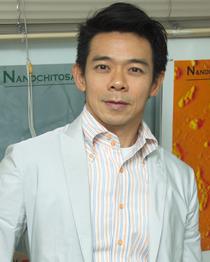
The 6th Global Conference on Polymer and Composite Materials (PCM 2019)


Biography: Dr. Suwabun Chirachanchai received his Ph.D. (Functional Polymers) from Graduate School of Engineering, Osaka University, Japan in 1995. He joined the Petroleum and Petrochemical College (PPC), Chulalongkorn University and started his projects on bioplastics, biopolymers, supramolecular chemistry, and fuel cell polymer membranes by focusing on molecular designs, syntheses, and structural characterization. He has published more than 100 articles in the world class journals such as JACS, Macromolecules, Polymer, Biomacromolecules, etc., and received honors and awards such as The Most Distinguish Scientist from National Research Council of Thailand, Thailand Innovation Award from Royal Science Society of Thailand, PTIT Award from Petroleum Institute of Thailand, including NSTDA-PTT Chair Professor (National Science and Technology Development Agency-PTT Public Company Limited). He became a full professor in 2009 and currently extends his research focus on Polymer for Green Environment, especially, Bioplastics. He was a President of Polymer Society of Thailand during 2012-2016 before becoming the PPC Dean in 2016.
Speech Title: Revisit Chitosan Modifications: A Simple Water-based System for Bio-related Applications
Aims: Chitosan (CS) is the only naturally abundant cationic polysaccharide which contains reactive hydroxyl and amino groups to perform bioactivity in addition to biodegradability, and biocompatibility and this leads to the potential bio-related applications. The main concern is that CS is insoluble in almost all solvents, except carboxylic acids, the chemical modifications for long years seem to be limited. The present work aims to show the simple CS functionalization to achieve the potential biomedical applications.
Methods: By simply forming CS complexes with conjugating additives, i.e. NHS (N-hydroxysuccinamide) or HOBt (hydroxybenzyltriazole), CS is soluble in water. The water-based CS favors the conjugation with functional molecules.
Results: A series of CS development, i.e. CS-PNIPAM for magnetic nanoparticles (MNPs), CS-gold nanoparticles for antigen detection, CS-PNIPAM cross-network hydrogels, etc. were successfully obtained as identified from the chemical structure analyses and the studies on the model applications.
Conclusions: The presentation will show the concept of the work including the concrete results to conclude how chitosan is still an important bio-derived polymers for valuable bio-related applications.
Acknowledgements: Center of Excellence on Petrochemical and Materials Technology, Chulalongkorn University; Chulalongkorn Academic into its 2nd Century (CUAASC) Project; and the Royal Golden Jubilee (the Thailand Research Fund).